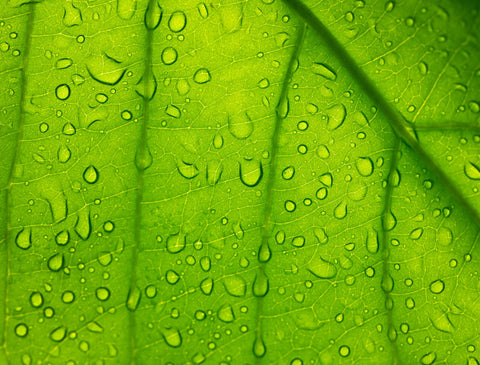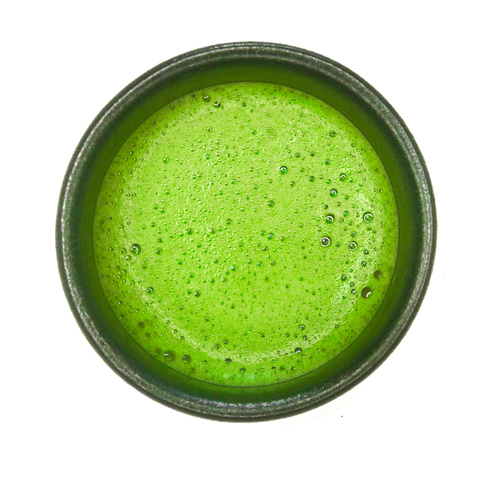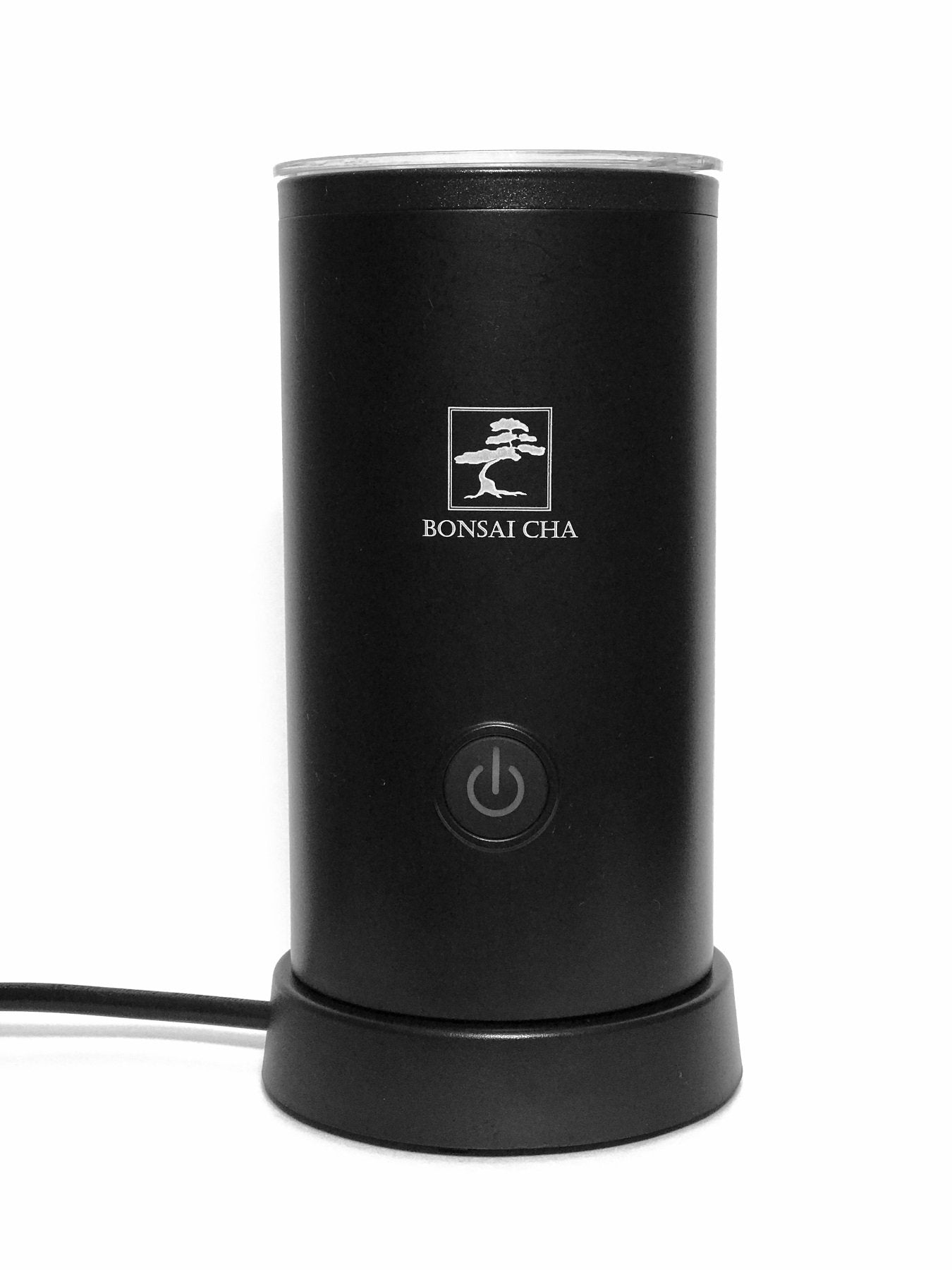
· By Avery Hastings
Exploring the Impact of Matcha and Coffee on Teeth
The Impact of Matcha and Coffee on Teeth
In recent years, the rise of health-conscious living has brought certain drinks to the forefront of our daily routines, with matcha and coffee standing out as popular choices. These beverages are not just morning pick-me-ups or cozy afternoon delights; they're steeped in cultural significance and numerous health discussions. Among these discussions, a common question arises: How do they affect our teeth? Specifically, many are curious about teeth staining – a concern for anyone who values a bright smile.
Matcha, a finely ground powder of specially grown and processed green tea leaves, has seen a surge in popularity, thanks in part to its rich taste and purported health benefits [1]. On the other hand, coffee, a global staple and the morning elixir for millions, is often eyed for its potential to stain teeth. But is it fair to compare the two? How do they stack up against each other in the realm of oral health?
This blog aims to shed light on these questions by diving into the heart of the matter: Does matcha stain your teeth? And if so, how does it compare to the teeth-staining potential of coffee? We'll explore the role of chlorophyll, tannins, and other compounds present in these beverages and their impact on oral hygiene. So, whether you're a matcha enthusiast, a coffee aficionado, or someone simply curious about maintaining a healthy, bright smile, read on as we unravel the mysteries of matcha, coffee, and teeth staining.

The Teeth Staining Dilemma – Matcha vs. Coffee
When it comes to teeth staining, many of us instinctively think of coffee. Its dark color and high prevalence in our diets make it an obvious suspect. But what about matcha? This green-hued beverage might seem innocent at first glance, but let’s delve deeper into its potential for causing tooth discoloration.
The Culprit Behind Staining: Tannins
The key factor in teeth staining is tannins [2]. Tannins are plant-based compounds that have the ability to bind to our teeth and lead to staining. Coffee is well-known for its high tannin content, which contributes to its strong, robust flavor and, unfortunately, its staining potential. But matcha is not free from tannins either. While its tannin content is different from that of coffee, it still possesses these compounds, albeit in a different composition.
Matcha's Saving Grace: Chlorophyll
Here's where matcha takes an interesting turn. Unlike coffee, matcha is rich in chlorophyll, the pigment responsible for its vibrant green color. Chlorophyll is not just a colorant; it's believed to have protective properties for teeth. Some studies suggest that chlorophyll can help in neutralizing acids in the mouth, thus protecting the enamel [3]. This unique characteristic of matcha might counterbalance the effects of tannins to some extent, possibly making it a less aggressive agent in terms of teeth staining compared to coffee.

Comparative Analysis: Staining Potential
So, does matcha stain your teeth as much as coffee? The answer is not straightforward. While both beverages contain tannins, the presence of chlorophyll in matcha and its potential oral health benefits might make it a slightly better option for those concerned about teeth staining. However, it's important to note that individual experiences may vary, and other factors such as drinking habits, oral hygiene, and the natural color of teeth play significant roles.
Tannins and Tooth Discoloration – A Closer Look
To fully understand the relationship between our favorite beverages and tooth discoloration, it’s crucial to delve into the role of tannins. Tannins are naturally occurring compounds found in a variety of plants, including the leaves used to make matcha and coffee beans. Their impact on our teeth is more significant than many realize.
Tannins: More Than Just Color
While tannins contribute to the rich colors of matcha and coffee, their influence extends beyond mere aesthetics. These compounds have a high affinity for binding with proteins, which is why they latch onto the dental enamel's protein-rich surface. This binding process is what leads to the staining of teeth [4].
Comparing Tannin Levels: Matcha vs. Coffee
Though both matcha and coffee contain tannins, their levels and types vary. Coffee generally has higher tannin content, which contributes to its darker color and higher propensity for staining. Matcha, while not devoid of tannins, has a different tannin composition that may be less binding to teeth, thanks to the presence of other compounds like chlorophyll, which we discussed earlier.
Mitigating Tannin Effects on Teeth
Understanding the role of tannins in tooth discoloration leads us to preventive measures. Regular oral hygiene practices, such as brushing and flossing, are fundamental in reducing the tannin buildup on teeth. Additionally, drinking water after consuming tannin-rich beverages can help in washing away some of the compounds before they settle on the teeth.

Tannins and Tooth Discoloration – A Detailed Look
What are Tannins?
Tannins are a type of polyphenol found in many plants, including tea leaves and coffee beans. They are responsible for some of the astringent flavors in these beverages [6]. While they offer certain health benefits, their high binding affinity to proteins can lead to staining on teeth.
Tannins in Coffee
Coffee is known for its high tannin content. These tannins, combined with the dark color of coffee, make it a prime candidate for causing tooth discoloration. The tannins in coffee adhere to the enamel and, over time, can lead to persistent staining, especially if oral hygiene is not maintained.
Tannins in Matcha
Matcha, while also containing tannins, has a significantly different impact on teeth. The chlorophyll present in matcha, which gives it its distinctive green color, seems to counteract some of the staining effects of tannins. This results in less pronounced tooth discoloration compared to coffee.
Preventing Tannin-Related Stains
To minimize tannin-related tooth discoloration, it's crucial to maintain good oral hygiene. This includes regular brushing, especially after consuming tannin-rich beverages, and using dental products that help reduce staining. Additionally, consuming these beverages through a straw can lessen their contact with teeth, thereby reducing the risk of stains.
Oral Health Benefits of Matcha – Beyond Teeth Staining
While much of the discussion around matcha and teeth staining often focuses on aesthetic concerns, it's important to delve into the oral health benefits matcha offers, which extend beyond its impact on tooth color.
Matcha's Antioxidant Properties
Matcha is renowned for its high antioxidant content, particularly catechins. These antioxidants play a crucial role in neutralizing harmful bacteria in the mouth [7]. By reducing bacterial growth, matcha helps in preventing plaque formation and tooth decay, contributing to overall oral health.
Matcha and Gum Health
Gum health is an integral part of oral hygiene. The anti-inflammatory properties of matcha can be beneficial for gums, helping to reduce gum inflammation and the risk of periodontal diseases. This aspect is especially important for individuals with sensitive gums or those prone to gum issues.
Matcha's Fluoride Content
Another often-overlooked aspect of matcha is its fluoride content. Fluoride is known for its role in strengthening tooth enamel and preventing cavities. The natural fluoride present in matcha contributes to the remineralization of teeth, offering a protective barrier against decay.
A Balanced Approach to Matcha Consumption
While matcha does contain elements that can contribute to staining, such as tannins, its health benefits for teeth and gums are significant. A balanced approach to its consumption, coupled with good oral hygiene practices, can help you enjoy the benefits of matcha without compromising your dental aesthetics.

Weighing the Benefits and Drawbacks
In this exploration of matcha, coffee, teeth staining, chlorophyll, and tannins, we've uncovered a multifaceted landscape of how these elements interact with our dental health. Let's summarize the key takeaways and provide final thoughts on balancing these aspects in our daily lives.
Key Takeaways
-
Matcha and Teeth Staining: While matcha does have the potential to stain teeth due to its tannin content, its staining effect is typically less severe than that of coffee.
-
Chlorophyll's Role: The presence of chlorophyll in matcha offers a unique dimension, potentially mitigating some staining effects while offering additional health benefits.
-
Coffee vs. Matcha: Coffee is a stronger contributor to teeth discoloration compared to matcha, largely due to its higher tannin concentration and acidity.
-
Tannins and Tooth Discoloration: Understanding the role of tannins in both matcha and coffee is crucial in managing their impact on teeth staining.
- Oral Health Benefits of Matcha: Beyond staining concerns, matcha's rich antioxidant profile and fluoride content provide substantial benefits for overall oral health.
Balancing Benefits and Drawbacks
The decision to include matcha or coffee in your diet should be informed by a holistic understanding of their impacts. While both have attributes that may affect dental aesthetics, their health benefits shouldn't be overlooked. Regular oral hygiene practices, such as brushing and flossing, along with routine dental check-ups, can help mitigate staining effects and maintain oral health.
In conclusion, both matcha and coffee have their unique profiles affecting dental health. Being aware of these factors allows for an informed approach to consumption, ensuring that you can enjoy their benefits while minimizing any adverse effects on your teeth.
Reference Table
- Suzuki, T., Pervin, M., Goto, S., Isemura, M., & Nakamura, Y. (2016). Beneficial effects of tea and the green tea catechin epigallocatechin-3-gallate on obesity. Molecules, 21(10), 1305. [Link](https://www.mdpi.com/1420-3049/21/10/1305)
- Koyama, Y., Kuriyama, S., Aida, J., et al. (2010). Association between green tea consumption and tooth loss: Cross-sectional results from the Ohsaki Cohort 2006 Study. American Journal of Clinical Nutrition, 91(4), 957-964. [Link](https://academic.oup.com/ajcn/article/91/4/957/4597222)
- Ren, L., Miller, P. D., Schlittler, D. L., et al. (2019). The effects of green tea catechins on oral health: A systematic review. Journal of Oral and Maxillofacial Surgery, 77(7), 1387-1396. [Link](https://www.joms.org/article/S0278-2391(19)30131-6/fulltext)
- Hara, Y. & Yang, C. S. (2011). Green tea: Health benefits and applications. Food Science and Technology, 2(1), 102-112. [Link](https://www.tandfonline.com/doi/abs/10.1081/FST-100108498)
- Addy, M., & Shellis, R. P. (2014). Interaction between tannin and human salivary proline-rich proteins. Archives of Oral Biology, 59(6), 533-539. [Link](https://www.sciencedirect.com/science/article/abs/pii/S0003996914000727)
- Furiga, A., Lonvaud-Funel, A., & Badet, C. (2008). In vitro study of antioxidant capacity and antibacterial activity on oral anaerobes of a grape seed extract. Food Chemistry, 113(4), 1037-1040. [Link](https://www.sciencedirect.com/science/article/abs/pii/S0308814608009638)
- Nakayama, T., & Tsujita, M. (2013). Inhibition of the formation of oral calcium phosphate precipitates: The possible effects of certain tea components. Caries Research, 47(3), 251-257. [Link](https://www.karger.com/Article/Abstract/343830)

